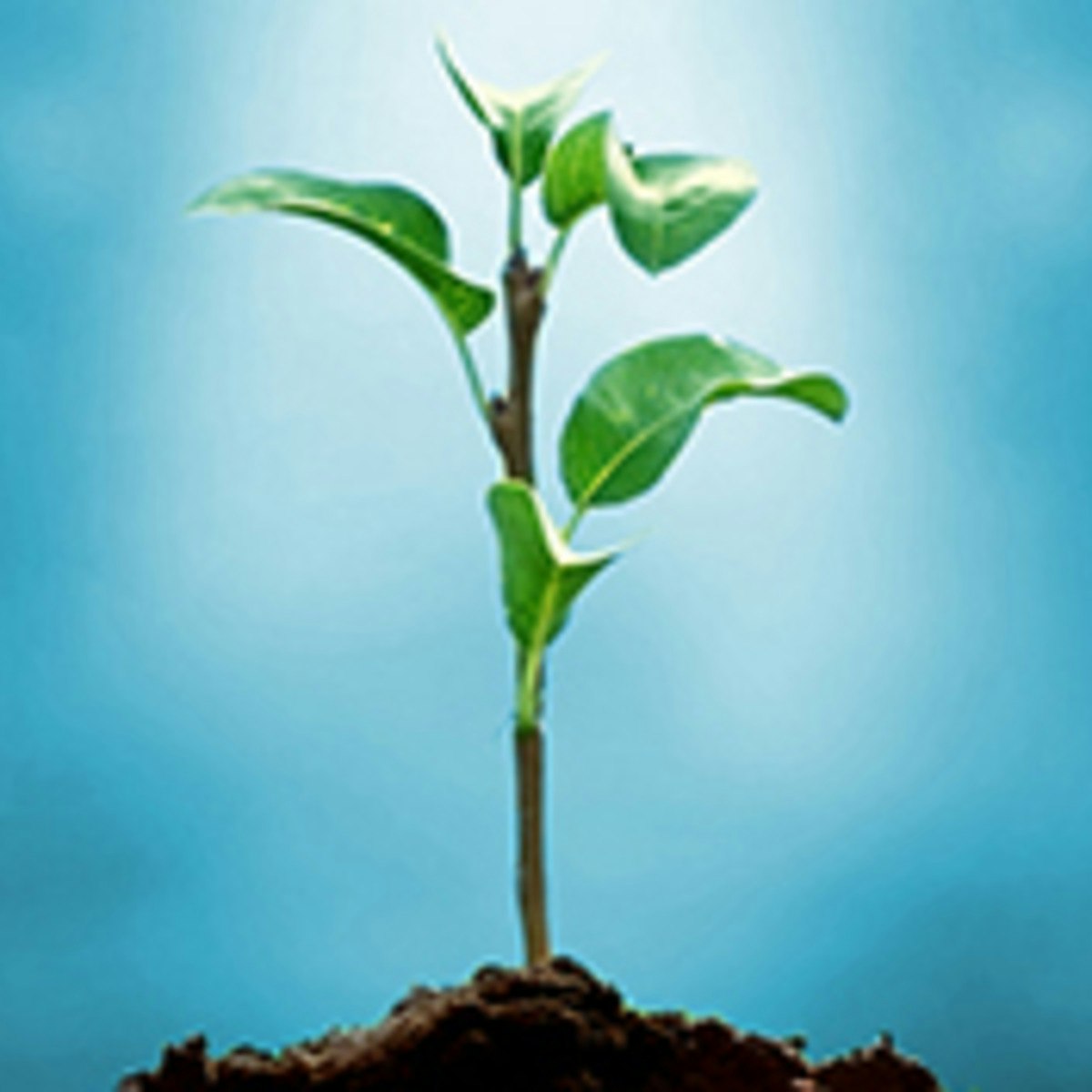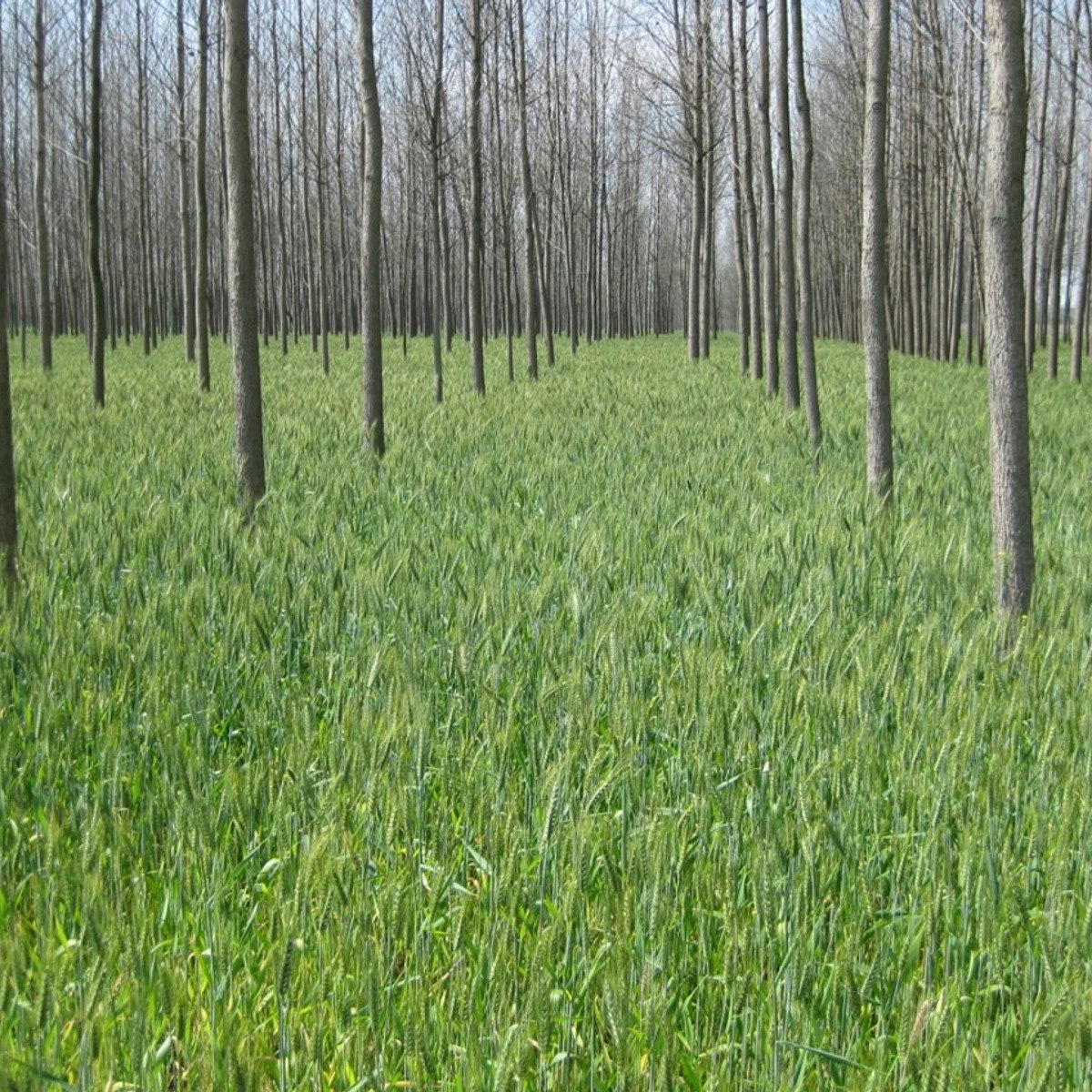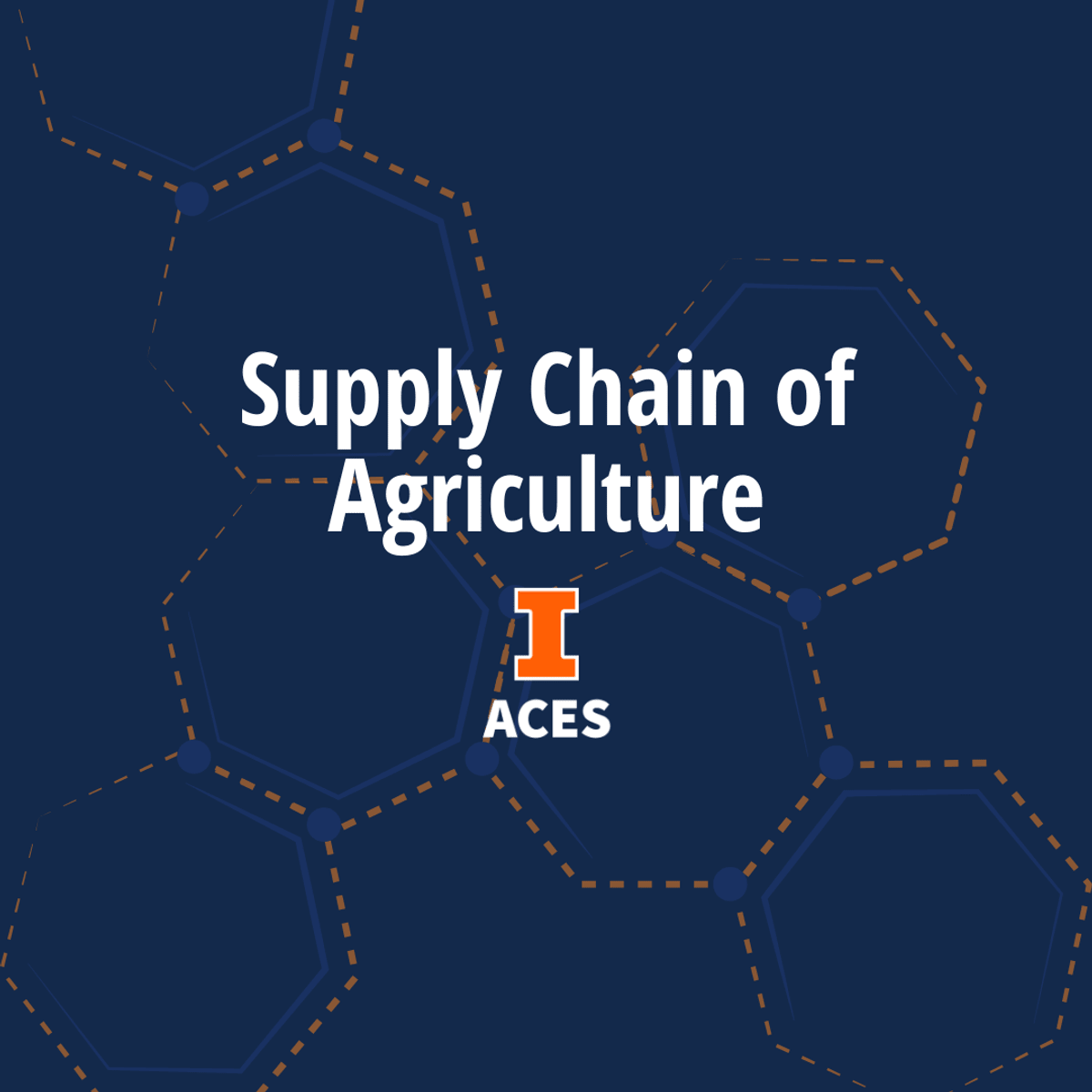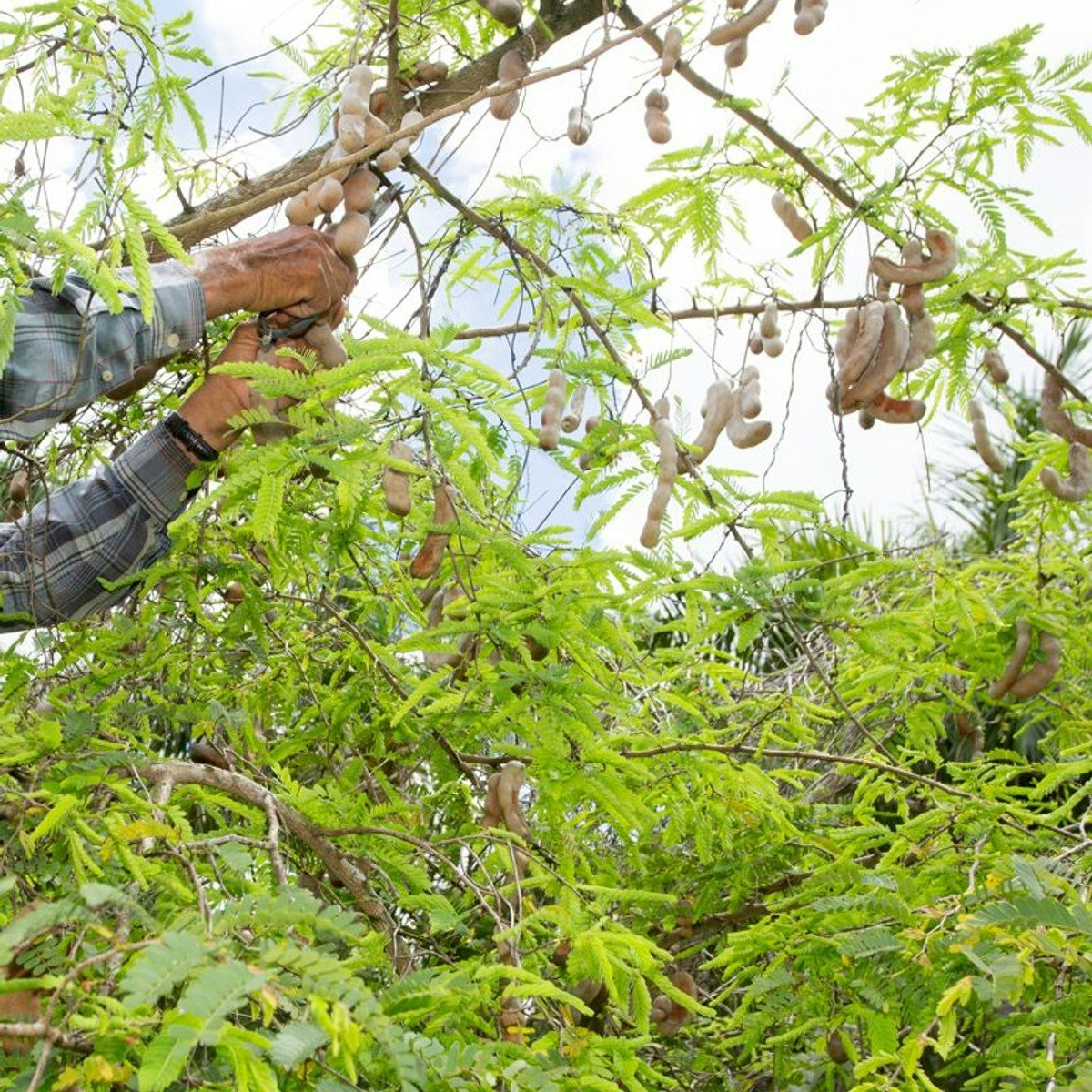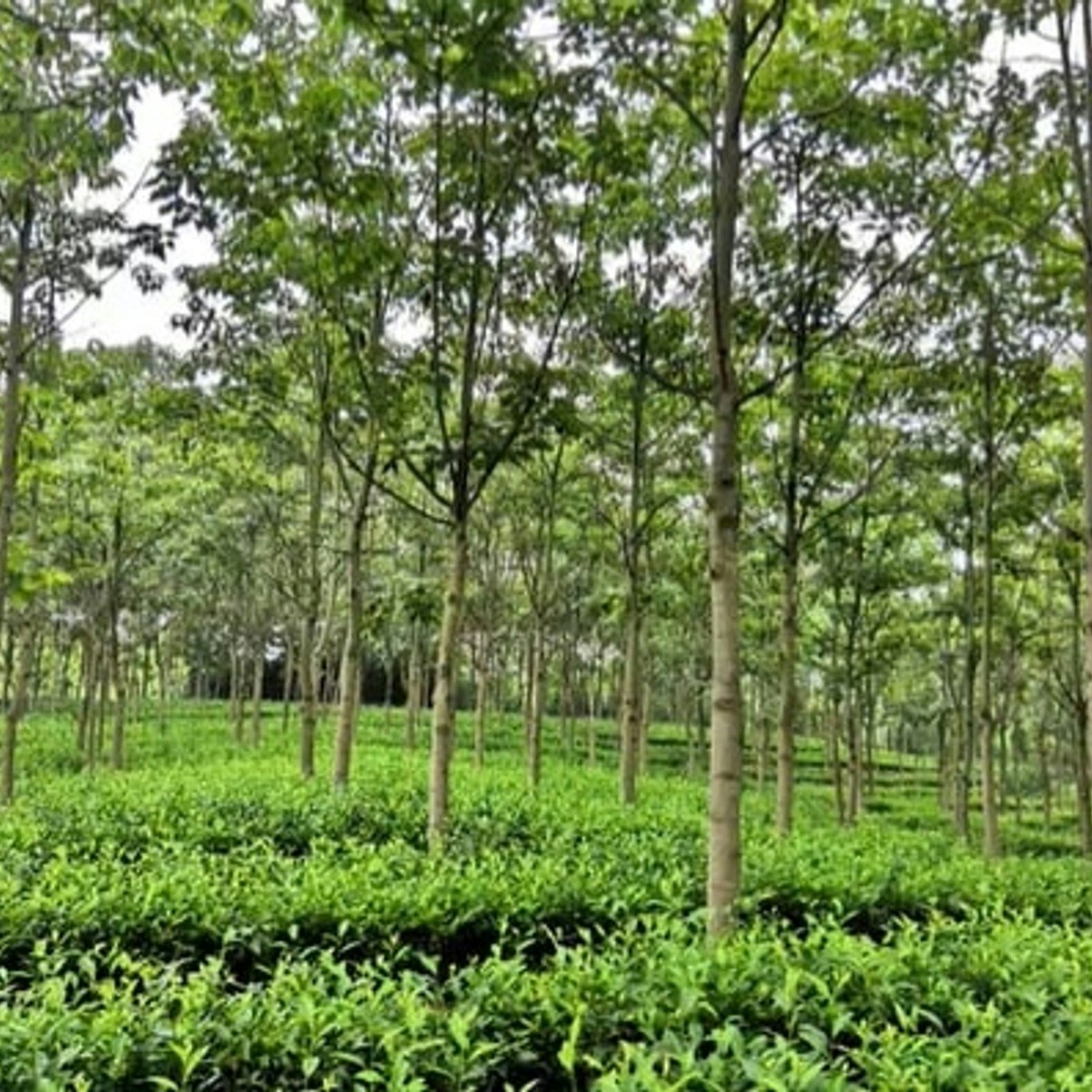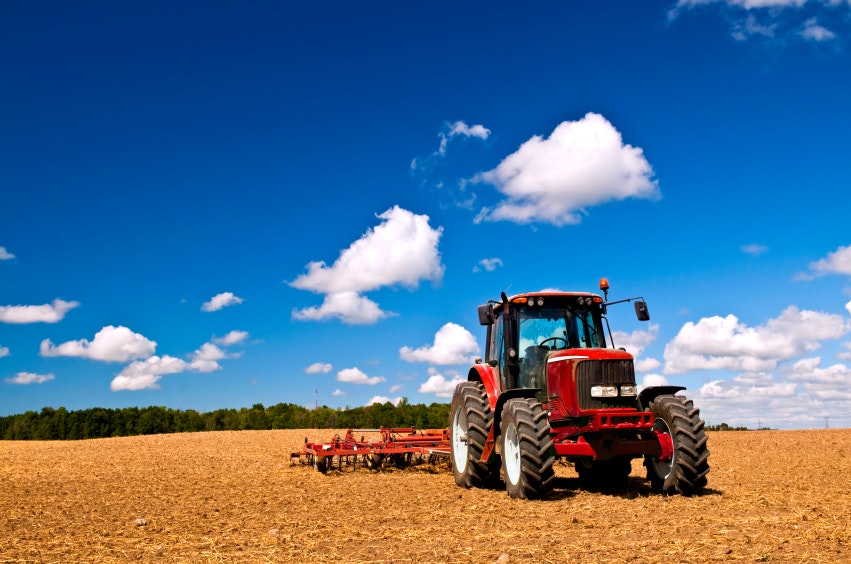Agronomist
Agronomist: Cultivating the Future of Food and Farming
Agronomy is the science and technology of producing and using plants for food, fuel, fiber, and land reclamation. It's a field that combines principles from biology, chemistry, ecology, earth science, and genetics to improve agriculture and manage our natural resources sustainably. Agronomists are the experts who apply this scientific knowledge to solve real-world problems in farming and environmental management.
Working as an agronomist often involves a mix of fieldwork, laboratory analysis, and advising farmers or land managers. You might find yourself analyzing soil samples one day and discussing innovative crop rotation strategies the next. It's a career deeply connected to the land and the fundamental challenge of feeding a growing global population while protecting our planet for future generations.
Introduction to Agronomy
This section delves into the fundamentals of agronomy, exploring its definition, history, core objectives, and its crucial role in addressing some of the world's most pressing challenges.
What is Agronomy?
At its core, agronomy focuses on optimizing crop production and soil management. It encompasses a wide range of practices, from selecting the right seeds and improving soil fertility to controlling pests and managing water resources efficiently. Agronomists study the complex interactions between plants, soil, climate, and human activities.
The scope is broad, involving crop science (breeding, physiology, production), soil science (physics, chemistry, biology), and environmental science (ecology, resource management). It's an inherently interdisciplinary field, drawing knowledge from various scientific disciplines to create practical solutions for agriculture.
Ultimately, agronomy aims to make agriculture more productive, sustainable, and resilient. It seeks to enhance the quantity and quality of food and other agricultural products while minimizing negative environmental impacts.
To get a foundational understanding of the plant science aspect central to agronomy, these courses offer excellent starting points.
For those interested in the critical role of soil, this book provides a comprehensive overview.
A Brief History
Agronomy, though formally named later, has roots tracing back to the dawn of agriculture itself, when early humans first began domesticating plants. Key advancements, like the understanding of crop rotation by ancient civilizations and the development of fertilizers in the 19th and 20th centuries, mark significant milestones.
The "Green Revolution" in the mid-20th century saw dramatic increases in crop yields through the development of high-yield varieties, synthetic fertilizers, and pesticides. While successful in boosting food production, this era also highlighted the environmental costs of intensive agriculture, leading to the modern focus on sustainability.
Today, agronomy continues to evolve rapidly, driven by biotechnology, data science, and a growing awareness of ecological limits. The field is increasingly focused on developing climate-resilient crops and practices that enhance both productivity and environmental health.
Key Goals and Principles
A primary goal of modern agronomy is achieving sustainable crop production. This means producing sufficient food and fiber to meet current needs without compromising the ability of future generations to meet their own needs. It involves balancing economic viability, environmental stewardship, and social equity.
Improving and maintaining soil health is fundamental. Healthy soil supports robust plant growth, filters water, stores carbon, and provides habitat for countless organisms. Agronomists develop practices like cover cropping, no-till farming, and organic matter management to enhance soil structure, fertility, and biological activity.
Efficient resource management is another critical pillar. This includes optimizing the use of water, nutrients, and energy in agricultural systems. Techniques like precision irrigation and nutrient management help minimize waste and reduce pollution.
These introductory courses explore sustainable practices and the essential role of soil in organic systems.
Addressing Global Challenges
Agronomy sits at the intersection of several major global challenges. Ensuring food security for a projected world population of nearly 10 billion by 2050 requires significant increases in sustainable food production. Agronomists are key players in developing strategies to meet this demand.
Climate change poses significant threats to agriculture through altered weather patterns, increased pests, and water scarcity. Agronomists work on developing climate-resilient crops and farming systems (Climate-Smart Agriculture) that can adapt to changing conditions and help mitigate agriculture's contribution to greenhouse gas emissions.
Furthermore, agronomy plays a role in protecting biodiversity, managing water resources sustainably, and developing alternative energy sources like biofuels. The skills and knowledge of agronomists are vital for navigating the path towards a more sustainable and food-secure future.
These courses delve into the connection between agriculture, sustainability, food security, and climate change.
Role of an Agronomist
What does an agronomist actually do? This section outlines the day-to-day responsibilities, essential skills, typical work environments, and how the role differs from related professions.
Core Responsibilities
Agronomists engage in a variety of tasks aimed at optimizing agricultural productivity and sustainability. A significant part of the role involves crop research and development. This might include breeding new plant varieties with desirable traits like drought tolerance or disease resistance, or testing the effectiveness of different cultivation methods.
Soil analysis and management are crucial. Agronomists collect and interpret soil samples to assess nutrient levels, pH, structure, and health. Based on this analysis, they recommend appropriate fertilization, irrigation, and tillage practices to improve soil conditions for optimal plant growth.
Pest, weed, and disease management is another key area. Agronomists identify potential threats to crops and develop integrated pest management (IPM) strategies. These strategies often combine biological controls, cultural practices, and judicious use of pesticides to minimize crop losses while protecting the environment.
Many agronomists also act as advisors, translating complex scientific information into practical recommendations for farmers, landowners, or agricultural businesses. This involves understanding the specific goals and constraints of their clients and tailoring advice accordingly.
This book covers modern approaches to weed control, a key responsibility.
Essential Skills and Competencies
Success as an agronomist requires a blend of scientific knowledge, practical skills, and interpersonal abilities. Strong analytical skills are essential for interpreting data from soil tests, field trials, and sensor technology. Familiarity with statistical analysis and data visualization tools is increasingly important.
Practical fieldwork skills are often necessary, including identifying plants, pests, and soil types, operating farm equipment (or understanding its operation), and conducting field experiments. Comfort working outdoors in various weather conditions is usually required.
Effective communication and collaboration are vital. Agronomists must be able to explain complex concepts clearly to farmers, policymakers, and other stakeholders. They often work in teams with researchers, technicians, and sales representatives.
Problem-solving abilities, adaptability, and a keen interest in continuous learning are also key traits, as the field is constantly evolving with new technologies and challenges.
Where Do Agronomists Work?
Agronomists find employment across various sectors. Many work for private agricultural companies, such as seed and chemical producers, food processing companies, or large farming operations. Roles here might involve research and development, technical sales support, or farm management.
Government agencies at the federal, state, and local levels also employ agronomists. Positions within organizations like the USDA involve research, extension services (providing advice to farmers), conservation planning, and policy development. International opportunities exist with organizations focused on global food security.
Consulting firms hire agronomists to provide independent advice to farmers and landowners on crop production, soil management, and environmental compliance. Non-governmental organizations (NGOs) working on sustainable agriculture and rural development projects also offer opportunities.
Finally, universities and research institutions employ agronomists as faculty members and researchers, advancing the scientific understanding of agronomy and training the next generation.
A Day in the Life
The daily routine of an agronomist can vary significantly depending on the specific role, employer, and time of year. During the growing season, much time might be spent outdoors, scouting fields for pests or nutrient deficiencies, monitoring crop growth, and collecting samples.
Other days might be spent in an office or lab analyzing data, writing reports, preparing recommendations, or attending meetings. Agronomists in research roles spend considerable time designing experiments, collecting and analyzing data, and publishing findings.
Long-term projects often involve multi-year field trials, developing new crop management protocols, or contributing to large-scale conservation efforts. The work blends immediate problem-solving with strategic planning for future agricultural challenges.
Agronomist vs. Related Roles
While related, agronomy differs from fields like horticulture and environmental science. Horticulturists typically focus on intensively managed crops like fruits, vegetables, flowers, and ornamental plants, often in gardens, greenhouses, or orchards. Agronomists generally work with large-scale field crops like grains, oilseeds, and forages.
Environmental Scientists study the broader interactions between human activities and the environment. While there's overlap in areas like soil conservation and water quality, agronomists specifically focus on optimizing plant production systems within environmental constraints.
Soil Scientists specialize deeply in the study of soil itself – its formation, classification, physical, chemical, and biological properties. Agronomists apply soil science principles directly to crop production and land management.
Formal Education Pathways
Entering the field of agronomy typically requires a solid foundation in science, usually obtained through formal education. This section outlines the common academic routes.
High School Foundation
For students considering agronomy, building a strong high school background in science is crucial. Courses in biology provide understanding of plant life, genetics, and ecosystems. Chemistry is essential for grasping soil reactions, fertilizers, and pesticides.
Mathematics, including algebra and statistics, is important for data analysis and modeling, which are increasingly central to the field. Earth science or environmental science courses can also provide valuable context.
Participation in clubs like Future Farmers of America (FFA) or 4-H, or gaining experience through part-time work on a farm or in a related business, can offer practical insights and strengthen university applications.
Undergraduate Studies
A bachelor's degree is typically the minimum requirement for entry-level agronomist positions. Common majors include Agricultural Science, Agronomy, Plant Science, Soil Science, or Environmental Studies with an agricultural focus.
Undergraduate programs cover core topics such as plant physiology, genetics, soil fertility, pest management, crop production techniques, and agricultural economics. Coursework often includes laboratory sessions and may involve fieldwork or internships.
Choosing a program accredited by relevant professional organizations can be advantageous. Look for universities with strong agricultural programs and connections to the local farming industry.
You can explore relevant degree programs and foundational courses within the Agriculture and Environmental Sciences categories on OpenCourser.
These courses cover fundamental principles relevant to undergraduate studies in agronomy.
Graduate Degrees and Specializations
While a bachelor's degree opens doors to many roles, a Master's (M.S.) or Doctoral (Ph.D.) degree is often required for research positions, university teaching, and higher-level management or specialized consulting roles. Graduate studies allow for in-depth specialization.
Common specializations include Soil Science (focusing on soil chemistry, physics, or microbiology), Crop Physiology, Plant Breeding and Genetics, Weed Science, Entomology (insect science), or Plant Pathology (disease science).
Graduate programs typically involve advanced coursework, independent research culminating in a thesis or dissertation, and opportunities to present findings at scientific conferences. Choosing an advisor and research project aligned with your career interests is critical.
These books delve into specialized areas often explored in graduate studies.
Doctoral Research and Academia
A Ph.D. is the standard requirement for becoming a university professor or leading independent research programs in agronomy. Doctoral research involves making original contributions to the field, often focusing on highly specific questions within a chosen specialization.
The path typically involves several years of intensive research, publishing in peer-reviewed journals, teaching undergraduate courses, and potentially securing research grants. Postdoctoral research positions are common stepping stones between completing a Ph.D. and obtaining a permanent faculty position.
An academic career offers the chance to push the boundaries of agronomic knowledge and mentor future scientists, but it is highly competitive.
Professional Certifications and Licenses
While not always mandatory, professional certifications can enhance credibility and career prospects. The most widely recognized certification in North America is the Certified Crop Adviser (CCA) program, administered by the American Society of Agronomy.
Becoming a CCA requires passing rigorous exams covering nutrient management, soil and water management, pest management, and crop management, as well as meeting specific educational and experience requirements. Maintaining the certification involves ongoing professional development.
Other specialized certifications exist in areas like nutrient management planning or pesticide application, and specific licenses may be required by state or local regulations depending on the nature of the work.
Online and Independent Learning
Beyond formal degrees, online courses and self-directed study offer valuable pathways to acquire knowledge and skills in agronomy, whether for career pivoting, supplementing education, or professional development.
Key Topics for Self-Study
Individuals can build a strong foundational understanding through independent learning. Key areas include soil science basics (understanding soil types, texture, structure, and fertility), plant biology fundamentals (photosynthesis, growth stages, basic genetics), and principles of crop management (rotation, tillage, irrigation).
Learning about common pests, diseases, and weeds in your region and integrated management approaches is also beneficial. Increasingly, familiarity with Geographic Information Systems (GIS) and remote sensing applications in agriculture is valuable, as these tools are central to precision farming.
Understanding basic farm economics and management principles provides important context for applying agronomic knowledge effectively.
These courses offer introductions to soil management, agroforestry, and essential tools like GIS.
Advantages of Online Learning
Online courses provide unparalleled flexibility, allowing learners to study at their own pace and on their own schedule. This is particularly advantageous for those balancing learning with work or family commitments, or for individuals living in rural or remote areas far from traditional educational institutions.
OpenCourser aggregates thousands of courses from various providers, making it easy to find resources on specific agronomy topics. You can compare course syllabi, read reviews, and even find deals on enrollment fees using the deals page.
Online platforms often offer courses from top universities and industry experts, providing access to high-quality instruction that might otherwise be inaccessible. Many courses offer certificates upon completion, which can be added to resumes or LinkedIn profiles, though their value varies.
For guidance on making the most of online learning, check out the resources available in the OpenCourser Learner's Guide.
Bridging Theory and Practice
While online learning excels at delivering theoretical knowledge, agronomy is a hands-on field. It's crucial to supplement online coursework with practical experience. This could involve volunteering at a community garden, starting your own small-scale growing projects, or seeking internships or entry-level positions on farms or with agricultural organizations.
Applying concepts learned online – like conducting simple soil tests, identifying local weeds, or experimenting with different watering techniques – reinforces understanding and builds practical skills. Documenting these projects can create a portfolio to showcase initiative and learning to potential employers.
Connecting with local farming groups, extension agents, or attending agricultural workshops can also provide valuable networking and hands-on learning opportunities.
These courses focus on practical aspects like gardening, specific crop farming, and irrigation design.
Setting Realistic Expectations
Transitioning into agronomy, especially from an unrelated field via self-study, requires dedication and realistic expectations. While online courses provide excellent knowledge, they generally cannot fully replace the depth, structured learning, networking, and hands-on lab/field experience provided by a formal degree program.
Breaking into the field without a relevant degree can be challenging, often requiring significant effort to gain practical experience and build a professional network. Entry-level roles like field technician or research assistant might be more accessible starting points.
However, a demonstrated passion for agriculture, coupled with knowledge gained through dedicated self-study and practical projects, can certainly open doors. Be prepared to start in foundational roles and continue learning on the job. Your unique background might even bring valuable perspectives to the field.
Career Progression for Agronomists
Like many professions, a career in agronomy typically follows a path of increasing responsibility and specialization. Understanding this trajectory can help you plan your long-term career goals.
Starting Out: Entry-Level Roles
With a bachelor's degree in agronomy or a related field, typical entry-level positions include Field Scout, Research Assistant, Lab Technician, or Assistant Farm Manager. These roles provide essential hands-on experience.
Field Scouts monitor crops for pests, diseases, and nutrient deficiencies. Research Assistants support senior scientists in conducting experiments, collecting data, and maintaining trial plots. Lab Technicians analyze soil, water, and plant tissue samples.
These initial roles are crucial for learning the practical aspects of agronomy, building technical skills, and understanding the day-to-day challenges faced in agriculture. They form the foundation for future advancement.
Advancing: Mid-Career Opportunities
After gaining several years of experience, agronomists often move into roles with greater responsibility. This might include becoming a lead Agronomist for a region, a Sales Agronomist providing technical support to clients, or a Crop Consultant advising multiple farms.
Roles in project management become common, overseeing research trials, implementing new farming practices across an operation, or managing conservation projects. Specialization might deepen in areas like precision agriculture, nutrient management, or specific crop types.
Obtaining professional certifications like the CCA often coincides with or facilitates advancement into these mid-career roles. Strong communication, problem-solving, and leadership skills become increasingly important.
Reaching the Top: Senior Positions
Senior agronomists often hold leadership positions with significant strategic responsibility. This could involve directing research and development for a large agricultural company, shaping agricultural policy within a government agency, or leading an academic department at a university (typically requiring a Ph.D.).
Titles might include Director of Agronomy, Senior Policy Advisor, R&D Lead, or University Professor. These roles often involve managing teams, overseeing large budgets, setting strategic direction, and representing their organization externally.
Extensive experience, a proven track record of success, advanced degrees (often M.S. or Ph.D.), and strong leadership capabilities are usually required for these top-tier positions.
This book discusses broader aspects of managing an agricultural business.
Pivoting: Transitions to Adjacent Fields
The skills and knowledge gained as an agronomist are transferable to various related fields. Experienced agronomists might transition into agricultural technology (AgTech), working for companies developing sensors, software, or drones for farming.
Opportunities also exist in the biofuels industry, food processing quality control, environmental consulting focusing on agricultural impacts, agricultural finance and lending, or international development organizations working on food security projects.
Some agronomists leverage their expertise to start their own consulting businesses or specialized farming operations. The breadth of the field provides numerous avenues for career evolution based on changing interests and market opportunities.
Industry Trends Impacting Agronomists
The field of agronomy is dynamic, constantly influenced by technological advancements, environmental pressures, regulatory changes, and shifting market demands. Staying aware of these trends is crucial for career success.
The Rise of Precision Agriculture
Precision agriculture involves using technology to manage variations within fields more accurately. Tools like GPS guidance systems, yield monitors, soil sensors, drones (UAVs), and satellite imagery allow for targeted application of inputs like water, fertilizer, and pesticides.
This data-driven approach helps optimize resource use, reduce environmental impact, and potentially increase profitability. Agronomists increasingly need skills in data analysis, GIS software, and interpreting information from various sensors to implement precision agriculture practices effectively.
These courses explore the application of drone technology in agriculture.
Adapting to Climate Change
Climate change presents significant challenges for agriculture, including more extreme weather events, shifting growing seasons, and increased pest pressure. Agronomists are central to developing and implementing climate-adaptive strategies.
This involves breeding crops with enhanced tolerance to heat, drought, or salinity; developing water-conserving irrigation techniques; improving soil health to enhance resilience; and adjusting planting dates or crop rotations. Research into climate-smart agriculture practices that reduce greenhouse gas emissions from farming is also a major focus.
Understanding climate models and their implications for local agriculture is becoming an essential skill for agronomists advising farmers.
These courses focus on climate resilience and adaptation in agriculture.
Evolving Regulations and Consumer Demands
Regulations concerning pesticide use, genetically modified organisms (GMOs), water quality, and nutrient management are constantly evolving. Agronomists must stay informed about these regulations to ensure compliance and advise clients appropriately.
Consumer preferences are also shaping the industry, with growing demand for organic produce, sustainably sourced products, and greater transparency in the food supply chain. This creates opportunities for agronomists specializing in organic farming systems, certification processes, or alternative production methods.
The rise of niche markets, such as non-GMO or locally grown food, requires agronomists to adapt management strategies to meet specific market requirements.
[course] Introducción a la Siembra DirectaGlobal Market Dynamics
Global trade, commodity prices, and demand for specific products like biofuels or plant-based proteins significantly impact agronomic decisions. For instance, increased demand for soybeans for animal feed or biofuel might influence crop rotation choices in certain regions.
Understanding international agricultural markets and policies can be advantageous, particularly for agronomists working for large multinational companies or in trade-related roles. Supply chain disruptions and geopolitical events also ripple through the agricultural sector, requiring adaptability.
The USDA Economic Research Service provides extensive data and analysis on international agricultural markets and trade.
This course examines the agricultural supply chain.
Ethical and Environmental Considerations
Agronomy operates at the critical interface between human needs and the natural environment. Agronomists often face complex ethical dilemmas and play a significant role in shaping agriculture's environmental footprint.
Balancing Productivity and Ecology
A central challenge in agronomy is balancing the need for high crop yields to feed the population with the imperative to protect ecosystems. Intensive farming practices can sometimes lead to soil degradation, water pollution, and loss of biodiversity.
Agronomists work to find solutions that enhance productivity while minimizing harm. This might involve promoting practices like conservation tillage, integrated pest management, cover cropping, or agroforestry, which integrate ecological principles into farming systems.
The tension between maximizing short-term yields and ensuring long-term ecological health is an ongoing consideration in the field.
This course explores agroforestry systems, which aim to integrate productivity and ecosystem services.
Monoculture vs. Biodiversity
Modern agriculture often relies on large-scale monocultures – growing a single crop over vast areas. While efficient for planting and harvesting, monocultures can be vulnerable to pests and diseases and reduce habitat for wildlife and beneficial insects.
Agronomists are involved in debates and research around diversifying farming systems. Strategies include complex crop rotations, intercropping (growing multiple crops together), integrating livestock, and planting field borders or buffer strips with native vegetation to enhance biodiversity.
Finding economically viable ways to increase biodiversity within agricultural landscapes is a key area of research and practice.
Agriculture's Carbon Footprint
Agriculture is a significant contributor to greenhouse gas emissions through factors like fertilizer use (nitrous oxide emissions), livestock (methane emissions), and land-use change. However, agriculture also holds potential for climate change mitigation through carbon sequestration in soils and biomass.
Agronomists play a crucial role in developing and promoting practices that reduce emissions and enhance carbon storage. This includes optimizing fertilizer application, improving manure management, promoting no-till farming, and incorporating perennial crops or agroforestry systems.
Understanding the nitrogen cycle and carbon dynamics in agricultural systems is vital for addressing climate change.
These resources delve into nitrogen management and carbon sequestration.
Ethical Use of Inputs
The use of synthetic fertilizers and pesticides has dramatically increased food production but also raises ethical and environmental concerns. Potential issues include water contamination from nutrient runoff, impacts on non-target organisms (like pollinators) from pesticides, and development of pesticide resistance.
Agronomists are often tasked with advising on the responsible use of these inputs. This involves following best management practices, promoting integrated pest management (IPM) strategies that minimize reliance on chemical controls, and exploring alternative approaches like biological controls or organic farming methods.
Navigating the trade-offs between input use, yield, economic viability, and environmental protection requires careful consideration and adherence to ethical principles.
Geographic and Cultural Contexts
Agronomy isn't practiced in a vacuum. Regional climates, soil types, economic conditions, and cultural practices heavily influence agricultural systems and the work of agronomists.
Regional Specializations
Agronomic practices vary significantly depending on the geographic location. An agronomist working in the humid tropics might focus on crops like rice, cassava, or coffee and manage challenges like high rainfall and soil leaching. In contrast, someone in an arid region would specialize in drought-tolerant crops and water conservation techniques.
Specializations exist for different climates (tropical agronomy, temperate agronomy), specific cropping systems (rice agronomy, viticulture), or land management challenges (arid land management, coastal agriculture). Understanding the specific environmental conditions and dominant agricultural systems of a region is crucial.
This course explores water management, a critical issue in many regions.
[course] Huella Hídrica: una mirada integral al uso del aguaJob Market Variations
The demand for agronomists and the types of available jobs can vary significantly by country and region. Areas with large agricultural sectors, strong research institutions, or significant investment in AgTech typically offer more opportunities.
In some regions, government extension services are major employers, while in others, private industry dominates. Understanding the local agricultural economy and key employers is important when planning a career or considering relocation. Salary expectations also differ based on location and cost of living. The U.S. Bureau of Labor Statistics provides outlook data for agricultural and food scientists in the United States.
Cultural Factors in Practice
Implementing new agricultural practices often requires navigating cultural norms and traditions. Farmers' willingness to adopt new technologies or management strategies can be influenced by long-standing practices, community expectations, and trust in information sources.
Agronomists working directly with farmers, especially in diverse cultural contexts or international settings, need strong interpersonal skills and cultural sensitivity. Understanding local decision-making processes and building rapport are essential for effective communication and adoption of recommendations.
Top-down approaches are often less successful than collaborative methods that respect local knowledge and involve farmers in the development process.
Language and International Work
For agronomists interested in working internationally, language skills can be a significant asset, if not a requirement. Proficiency in the local language facilitates communication with farmers, colleagues, and local officials, leading to more effective collaboration and understanding.
Many international organizations and research centers operate in English, but field positions often necessitate fluency in other languages relevant to the region of work (e.g., Spanish, French, Swahili, Hindi). Cultural adaptability and experience working in diverse settings are also highly valued for international roles.
Consider exploring language courses on OpenCourser if you are interested in international opportunities.
Frequently Asked Questions (Career Focus)
Here are answers to some common questions individuals have when considering a career as an agronomist.
Is a graduate degree necessary for advancement?
Not always, but it often helps. A bachelor's degree is sufficient for many entry-level and mid-career roles, particularly in field consulting, sales, or farm management. Practical experience and certifications like the CCA can lead to significant advancement.
However, for research-intensive positions, university teaching, or high-level leadership roles in R&D or policy, a Master's degree (M.S.) or Ph.D. is typically required or strongly preferred. A graduate degree provides specialized knowledge and research skills valued in these areas.
How does agronomy differ from organic farming?
Agronomy is the broad science of crop production and soil management, encompassing all types of farming systems, including conventional, integrated, and organic. Organic farming is a specific production system defined by standards that prohibit the use of synthetic fertilizers, synthetic pesticides, and GMOs, while emphasizing practices like composting and crop rotation.
An agronomist might specialize in organic systems, advising farmers on how to meet certification standards and manage pests and fertility using approved methods. However, many agronomists work within conventional systems or integrate practices from various approaches.
What industries hire agronomists outside of direct farming?
Agronomists work in diverse industries beyond on-farm production. These include:
- Agribusiness: Seed companies, fertilizer/chemical manufacturers, equipment dealers (roles in R&D, sales, technical support).
- Food Processing: Ensuring quality and supply of raw agricultural commodities.
- Consulting: Environmental consulting (soil remediation, water quality), agricultural consulting firms.
- Government: Research agencies (USDA ARS), conservation services (NRCS), regulatory bodies (EPA), international development (USAID).
- Finance: Agricultural lending, commodity trading, investment analysis.
- Technology: AgTech startups developing software, sensors, drones.
- Education: Universities and community colleges (teaching, research, extension).
Can I transition into agronomy from an unrelated field?
Yes, it's possible, but requires effort and planning. Strengths from other fields (e.g., data analysis, project management, engineering) can be valuable. Building foundational knowledge through online courses or a post-baccalaureate program is a good start.
Gaining relevant practical experience is crucial – through internships, volunteering, or entry-level positions. Networking within the agricultural community is also key. Highlight transferable skills and demonstrate a genuine passion for agriculture during your job search.
While challenging, a career change is feasible with dedication. Be prepared for potentially starting at an entry-level position to gain necessary experience.
What are the risks of automation in this career?
Automation and technology are transforming agriculture, potentially impacting some tasks traditionally performed by agronomists. Routine data collection (e.g., via drones or sensors) may become more automated. However, technology also creates new opportunities.
The need for experts who can interpret complex data, make informed decisions, understand biological systems, and communicate effectively with farmers is likely to grow. Agronomists who embrace technology and develop skills in data analysis, GIS, and precision agriculture will be well-positioned for the future.
The role may evolve from direct data collection to higher-level analysis, interpretation, and strategic advising, leveraging technological tools.
How does agronomy contribute to climate change mitigation?
Agronomy plays a vital role in both adapting agriculture to climate change and mitigating its causes. Agronomists develop and promote practices that reduce greenhouse gas emissions from farming, such as optimizing nitrogen fertilizer use (reducing nitrous oxide), improving manure management, and adopting conservation tillage.
Furthermore, agronomic practices can enhance carbon sequestration – capturing atmospheric carbon dioxide and storing it in soil organic matter and plant biomass. Techniques like cover cropping, agroforestry, and improved grazing management contribute to this goal.
By advancing climate-smart agriculture, agronomists help make food production more sustainable and resilient while contributing to global climate solutions.
These books discuss soil's role in climate solutions.
Embarking on a career in agronomy offers the chance to engage with critical scientific, environmental, and societal challenges. It requires a blend of scientific understanding, practical skills, and a commitment to sustainable practices. Whether through formal education or dedicated independent learning combined with hands-on experience, the path to becoming an agronomist is one that contributes directly to feeding the world and stewarding our planet's resources.


